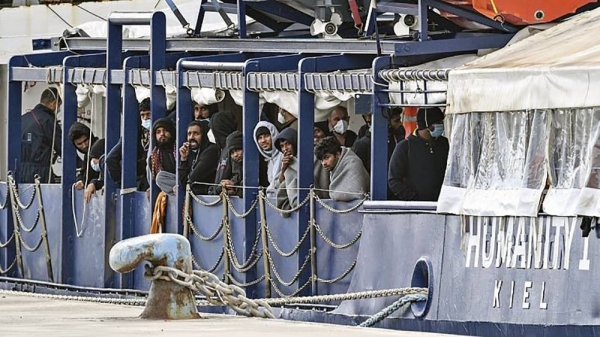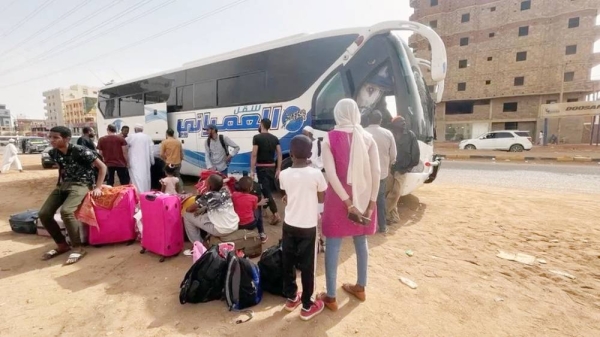
Author
Abdellatif El-Menawy
May 30, 2018 14:47
37
A number of questions were raised in the political arena after Egyptian President Abdel Fattah El-Sisi — during his speech at the fifth National Youth Conference — called on parties to merge in order to revive political life in Egypt.
The most important question here is: Is this really the best solution? In other words, does this benefit the life of political parties? Also, how much does this move affect the opposition? And will parties respond and cooperate with this merger? There remain many doubts about the ways in which the merger will take place.
The political events that have happened in Egypt over the past seven years exposed the fragility of Egyptian political parties and their lack of staff suitable for public work. This may be the result of the “scraping” process, which political life in Egypt has been undergoing for many years.
This scraping might have started in the early 20th century, when political life saw a series of episodes that allowed the emergence of some parties and the withdrawal of others. These episodes coincided with peculiar political circumstances, including Egypt being under colonial rule, followed by the July 23 revolution and later the October War, the economic and political openness of the 1970s, the period of stability and rigidity in the 1980s and 1990s, and finally the Jan. 25 revolution.
Perhaps the president feared political monotony, which began to re-emerge after a period of great momentum, since people started to fear those “parties,” whether they were new or old; and they had not forgotten the dangers of joining or forming them.
Or maybe El-Sisi realized that developments in Egypt’s political life revealed the importance of having strong political parties that are popular enough to convince the public and find their place among the youth. In order to achieve this idea, the president launched initiatives for the merging of parties. Nevertheless, the idea will face challenges and will test the Egyptian regime’s political will and how serious it is about having strong political parties.
It is estimated Egypt currently has 106 official political parties, most of which were formed after Jan. 25, 2011, and are based in Cairo. This is a large number compared to those under the rule of former President Hosni Mubarak, which was not more than 20.
Many observers describe the parties formed in Egypt before and after the 2011 revolution as “cartoonish,” which shows that these parties do not really have supporters or a clear role. The phrase also indicates that these parties have similar and vague political programs and members that cannot distinguish one from the other. This is one of the reasons why these parties tend to do social work and distance themselves from politics in a bid to distinguish themselves from those of other parties.
There are dozens of parties that cannot be politically classified because their programs have no clear political or economic orientation and their identities are so similar that it is difficult to differentiate between them based on ideologies. This is why some political powers are demanding a law that forces every party to have more than 100,000 active members across Egypt, forcing similar groups to merge — this will ensure there are strong parties capable of reaching the public.
Many observers describe the parties formed in Egypt before and after the 2011 revolution as “cartoonish,” which shows that these parties do not really have supporters or a clear role.
Abdellatif El-Menawy
Political parties rely on donations or membership subscriptions, but with fewer members and the legal prohibition of receiving donations, parties find themselves pressured to discontinue their action. This has led some of them to try and include businessmen in their supreme authorities to secure funding. In addition to this, families control many political parties nowadays. In other words, one family would lead several parties and control their secretariats to ensure that no conflict occurs over their leadership in the future, subjecting it to a freeze.
It appears that the conclusion reached by the discussions of the parties and in parliament is the introduction of two large political blocs, one of which represents the state while the other represents the opposition.
However, part of the opposition in parliament expressed fears after experiencing the actions of the majority’s MPs against their colleagues. This has instilled a sense that opposition means treason and being against the state’s interests, leading parties to fear appearing as an opposition entity and leaving them with one of two options: Either to fully support the state or to escape to social and sports activities.
There is a strong view that merging parties during the current period will confuse Egypt’s political life. Egyptian parties have lost most of their support base and lost their direction, which are key components for creating political balance. These parties’ weak performance has affected how the public receives them, especially when most believe parties are “electoral tools” that disappear as soon as elections are concluded.
Political life definitely needs strong parties — this is a fact everyone agrees on. It doesn’t make sense that there are so many parties in Egypt yet people find them useless. In fact, maybe Egyptian citizens only remember a few of the parties’ names since the overwhelming majority of them are not represented in parliament, have no media platforms, and don’t have known offices.
This is the truth that should be recognized. But, conversely, is a merger in the proposed manner the best solution? What about its mechanism and how it will be carried out?
Some believe that merging parties should be based on the convergence of their ideologies and their political orientations, rather than randomly. On the other hand, there is another opinion that believes the different ideologies and a love of power are among the main obstacles to achieving a merger.
Abdellatif El-Menawy is a critically acclaimed multimedia journalist, writer and columnist who has covered war zones and conflicts worldwide. Twitter: @ALMenawy
Disclaimer: Views expressed by writers in this section are their own and do not necessarily reflect Arab News" point-of-view










